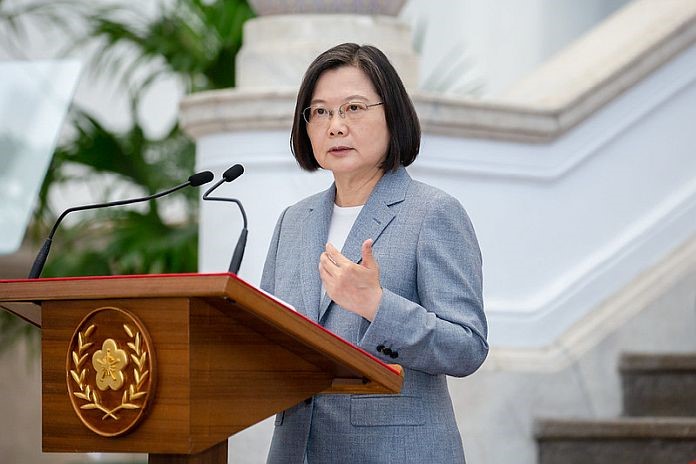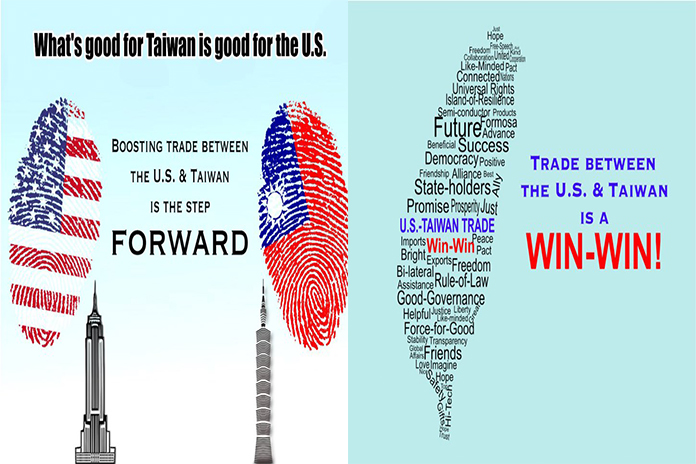By Caribbean News Global ![]()
TORONTO, Canada – Many legislative and conclusive decisions in recent times towards US – Taiwan relations are now considered inextricably linked to forging economic, security, education, trade, technology and innovation, investment, and in particular foreign policy to help advance US – Taiwan interests globally.
Recently, it was announced that a former US national security adviser, Robert O’Brien will join Washington think tank Global Taiwan Studies Center (GTI) as chairman – working on US-Taiwan relations.
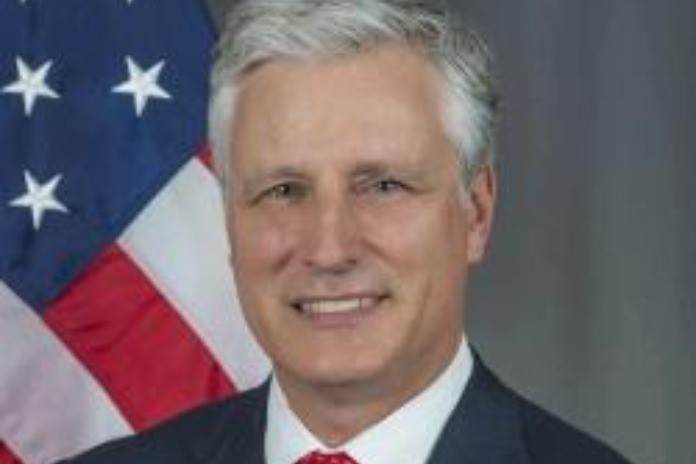
O’Brien, an attorney from California, is a former US national security adviser, and according to Democratic Progressive Party (DPP), legislator Luo Zhizheng, an international relations scholar, said: “This is important in substance. I also believe that it will enable the United States to better understand the situation across the Taiwan Strait. This is a positive development,” he added. “ A US think tank focusing on Taiwan for research and policy analysis, has important symbolic and substantial significance,…”
Global Taiwan Institute (GTI) mission is to ‘enhance the relationship between Taiwan and other countries, especially the United States, through policy research and programs that promote better public understanding about Taiwan and its people’ with a ‘vision to raise awareness, deepen affinity, and create opportunities for strengthening the relationship of Taiwan, its people and culture, with the international community’.
The Global Taiwan Brief Volume 6, Issue 14: US, Japan Recalibrating Taiwan Policy and Signaling Deterrence as PLA Steps Up Coercion, by Russell Hsiao, notes: “Taiwanese foreign minister Joseph Wu (吳釗燮) underscored Taipei’s concern when he recently stated in an interview with CNN that Taiwan needed to “prepare ourselves for a possible conflict.” In response to the increasing prospect of a potential crisis in the Taiwan Strait, senior leaders in the United States and Japan are making clearer statements, ostensibly to signal increasing clarity about their potential military responses to a Taiwan contingency.”
For years, the US-Taiwan relationship has subscribed to consolidate its national security threats. With new mandates from Congress, US regulators, The Eagle ACT, seems ready to set the guardrails and implement symmetry of standards.
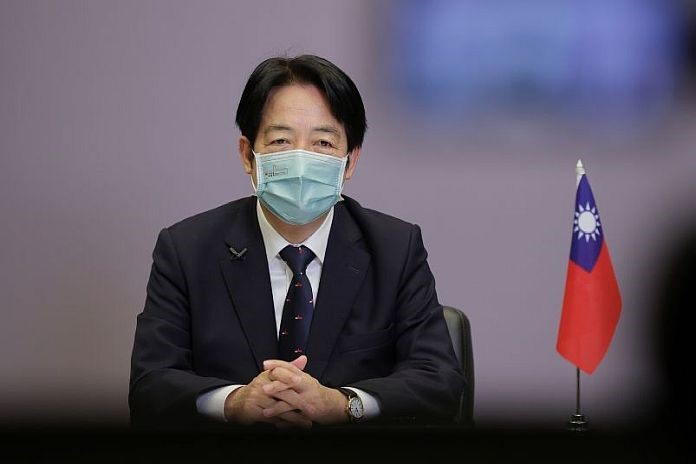
On July 21, vice president Lai Ching-te said: “Taiwan is committed to promoting the development of biomedical industries across Asia, playing a pivotal role in international health cooperation; during a virtual opening ceremony of the 2021 Bio Asia-Taiwan International Conference and Exhibition jointly organized by Taipei City-based Taiwan Bio Industry Organization and Washington-headquartered Biotechnology Innovation Organization,” as reported by Taiwan Today. “Lai took the opportunity to praise Taiwan BIO Chairman Johnsee Lee and partners for their exemplary efforts in showcasing the country’s biotechnology industry on the international stage.”
He added. “As the world prepares to enter the post-pandemic era, opportunities abound for partnerships between Taiwan and like-minded countries to reach new heights, the vice president said. The government looks forward to stepping up efforts to bolster international cooperation on global health security.”
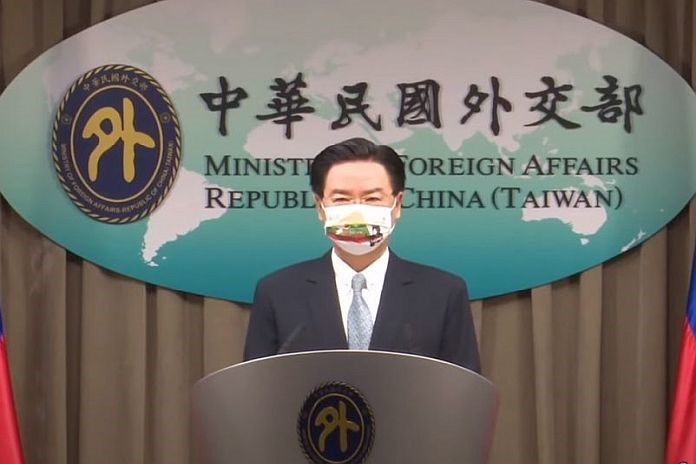
Taiwan’s powerhouse of economic and political gains continues to expand with the first representative office in Europe since the one in Slovakia 18 years ago. The Taiwanese Representative Office in Lithuania is part of government efforts to strengthen the country’s relations across the board with the EU member state. “… the facility is expected to serve as a base for deepening ties between Taiwan and countries in the Baltics and central and eastern Europe.
According to the MOFA, Taiwan and Lithuania share the fundamental values of freedom, democracy and respect for human rights, with like-minded partners poised to benefit from enhanced collaboration in areas spanning industry, technology and trade.
Last week, Taiwan announced its cybersecurity industry looks to expand globally, following decades of steady progress backed by a long-standing emphasis on high-tech development and strong government support, reported Taiwan Today.
“Faced with serious cyberthreats and related challenges, Taiwan has actively promoted policies built around the concept that information security is national security,” said Jyan Hong-wei, director-general of the Department of Cyber Security under the executive Yuan. “This is evidenced by the inclusion of cybersecurity in the six core strategic industries unveiled by president Tsai Ing-wen during her 2020 inauguration speech.”
Taiwan has proactively planned and promoted is Six Core Strategic Industries to maintain stable economic growth, further illustrated in the article: Taiwan is a powerhouse of economic and political gains.
Moreover, Jeff Hung, general manager of Taipei-based CHT Security Co., illustrated that: “The inclusion of cybersecurity in the six core strategic industries is a huge boon to those in the business,” he said. “The policy brings expanded government assistance with experimentation facilities, finance, talent cultivation, technology and regulatory frameworks,” concluded that: “Through interindustry collaboration and strong government support, Taiwan is set to become a world leader in cybersecurity.”
Taiwan’s intelligent planning, its advanced digital ecosystem leveraging its strengths in information and communication technology (ICT), square nicely with US –Taiwan relations inextricable linkages, evident by: Taiwan ranked 12th among 141 economies in the 2019 edition of the Global Competitiveness Report issued by Geneva-based World Economic Forum (WEF) and was also lauded as among the top four super innovators by WEF alongside Germany, the US and Switzerland in 2018 and 2019.
Thru a win-win cooperation, Taiwan, as a model citizen in global society, will continue to promote humanitarian aid and disease control while actively participating in international efforts to tackle climate change, terrorism and transnational crime. Going forward, the nation will build lasting partnerships with allied and like-minded countries through fostering governmental interactions, business investments and people-to-people exchanges, and work with its partners around the world to uphold and promote the universal values of peace, freedom, democracy and human rights, says Ministry of Foreign Affairs, (MOFA).
Changes in society, economic liberalization and democratic transformation in Taiwan have created a fertile environment for the private sector, and non-governmental organizations have flourished. Civil society today plays a key role in ensuring good governance and enabling Taiwan to exert its soft power in the international arena. NGOs have raised Taiwan’s profile by engaging in various international cooperation projects closely aligned with the UN Sustainable Development Goals, reference 2020-2021 Taiwan at a Glance (English).
Therefore, looking forward, US –Taiwan relations and the provision of US think tank focusing on Taiwan for research and policy analysis, as well as international cooperation outlined in The Eagle Act, solidifies global undertakings for growth and momentum in a secure environment.



